
Eugenie Grandet
'Eugenie Grandet' Summary
Felix Grandet, master cooper, married the daughter of a wealthy timber merchant at a time when the French Republic had confiscated the lands of the Church in the district of Saumur. When the land was auctioned his wife's dowry and his existing savings enabled him to buy substantial property, including some of the best area under vines, all at a very satisfactory price. Though there was little sympathy locally for the Revolution, Grandet rose in esteem and became mayor, later yielding the post under the Empire only because Napoleon had no liking for republicans. At this time his only daughter was ten years old and in that same year more wealth fell into Grandet's lap by way of inheritance of the estates of his mother-in-law, grandfather-in-law, and grandmother.
We gradually learn of Grandet's miserly habits which included rarely admitting townspeople to his house. The principal exceptions were his banker des Grassins and his notary Cruchot, both of whom understood better than many the extent of Grandet's wealth and that since he was 60 in 1819 when much of the action is set, that the wealth must one day devolve on Eugénie. Naturally, they had candidates to marry her in the form of Cruchot's nephew President Cruchot de Bonfons who was president of the court of first instance, and the des Grassins son, Adolphe des Grassins. The townspeople take a lively interest in the competition, which is only natural since some sort of inheritance was the major route to prosperity in the early nineteenth century.
Throughout this sequence we are treated to details of Felix Grandet's parsimony; this may have developed initially through sheer lack of funds but by now is total vice. He counts out slices of bread in the morning though actually never parting with cash for it since one of his tenants pays part of his rent in kind; most other consumables are supplied in a similar way. Mme Grandet is given no more than six francs at a time for pocket money. Though his house is impressive externally it is old and run-down, and he is too miserly to repair it; their servant Nanon puts her foot through a rotten stair but faithfully saves the bottle she carries. The novel illustrates Balzac's belief that money had taken over as the national god.
On Eugénie's birthday, in 1819, Felix Grandet is celebrating with his favoured coterie of Grassinistes and Cruchotins. They are disturbed by a confident knock on the door and a young stranger is admitted, who hands a letter to Felix. It is from brother Guillaume, unseen and unresponsive in Paris for 30 years asking Felix to assist Charles his son to travel to the Indies. Additionally and confidentially, that Guillaume having gone bankrupt, is planning to take his own life. The next day newspaper headline announces the fact of Guillaume's death, and debts, which causes Charles to break down. While he sleeps Eugénie reads a letter to his mistress and assumes he is dismissing Annette and planning to marry her: Another letter impels Eugénie to collect up the rare gold coins her father gave her on her birthdays. Later she offers the gold to Charles who asks her to guard a gold dressing case given to him by his mother. Meanwhile Felix had made 14,000 francs on dealing in gold coin and preparations were made for Charles to depart to the Indies. Felix devises a way of profiting from winding up his deceased brother's failed business, aided by des Grassins.
After Charles has left, Balzac reserves a final degradation for Grandet. His wife, who had been patient, loving and supportive throughout their married life, had been physically ground down by their austere life. As she lay ill in bed, with Eugénie pleading for a fire to warm her and the services of doctor, he does nothing and she dies. Eugenie lives the next several years in Saumur with her faithful servant Nanon and Nanon's husband, M. Cornoiller, and remains unmarried. Meanwhile, Charles has made a fortune trading slaves in the Americas. He decides to marry into a noble family, the d'Aubrions, to advance his social standing once he is back in Paris, assuming that his debt has been taken care of. He writes to Eugénie of this, telling her that he does not love his new fiancee, and that he still remembered their promise from all those years ago.
Eugénie is shocked by this news. Later that day, her pastor comes visiting to advise her to fulfill her Christian duty to marry and produce heirs to her fortune. She decides to marry Cruchot, under the conditions that he must never attempt to consummate their marriage. Cruchot goes on to become president of the superior courts, but dies before achieving his final ambitions of attaining a peerage. After his death, Eugénie remains in the old Grandet household, living as parsimoniously as they had always lived, donating her accumulated wealth to charitable causes.
Book Details
Language
EnglishOriginal Language
FrenchPublished In
1833Authors
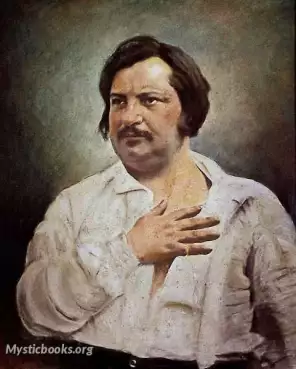
Honoré de Balzac
France
Honoré de was a French novelist and playwright. The novel sequence La Comédie humaine, which presents a panorama of post-Napoleonic French life, is generally viewed as his magnum opus....
Books by Honoré de BalzacDownload eBooks
Listen/Download Audiobook
- Select Speed
Related books

Pocket Measure by Pansy (Isabella Macdonald Alden)
This book explores the lives of three women, each navigating different aspects of their marriages and financial situations. Callie and her husband str...
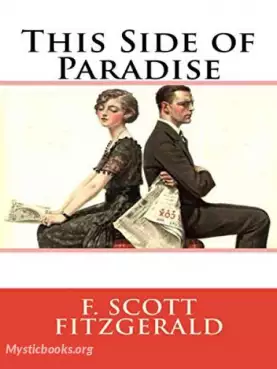
This Side of Paradise by F. Scott Fitzgerald
A romantic and witty novel that has weathered time to remain one of America’s classic pieces. In the shadows of the great Gatsby is another brilliant...

Senhora by Jose de Alencar
"Senhora" is a classic of Brazilian literature that explores the complex social issues of 19th century Brazil. Through the story of Aurélia and Fernan...

Modeste Mignon by Honoré de Balzac
Modeste Mignon is a novel by the French writer Honoré de Balzac. It is the fifth of the Scènes de la vie privée (Scenes of Private Life) in La Comédie...

Favole di Jean de La Fontaine: Libro 10 by Jean de La Fontaine
Nei 12 volumi delle "Favole" (1669 - 1693) Jean de La Fontaine rinnovò la tradizione esopica, rappresentando la commedia umana. Quest'opera dimostrò i...
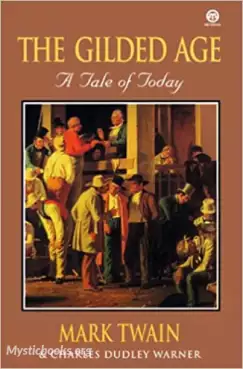
The Gilded Age, A Tale of Today by Mark Twain
The Gilded Age: A Tale of Today is a novel by Mark Twain and Charles Dudley Warner. It satirizes greed and political corruption in post-Civil War Amer...

Glimpses of the Moon by Edith Wharton
"The Glimpses of the Moon" (1922) is about Nick and Susy Lansing, both of whom live a decadent life in Europe by sponging off wealthy friends. They ma...
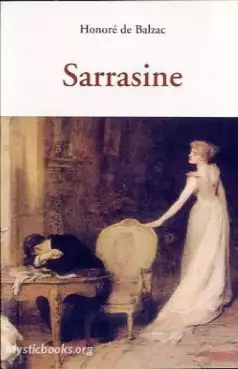
Sarrasine by Honoré de Balzac
Sarrasine is a novella written by Honoré de Balzac. It was published in 1830, and is part of his Comédie Humaine.

Gobseck by Honoré de Balzac
Gobseck, an 1830 novella by French author Honoré de Balzac (1799-1850), appears in the Scènes de la vie privée section of his novel sequence La Comédi...
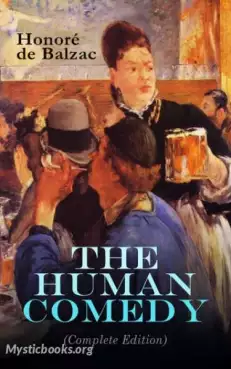
La Comédie Humaine: 03 - Scènes de la vie privée tome 3 by Honoré de Balzac
Ce n'était pas une petite tâche que de peindre les deux ou trois mille figures saillantes d'une époque, car telle est, en définitif, la somme des type...
Reviews for Eugenie Grandet
No reviews posted or approved, yet...